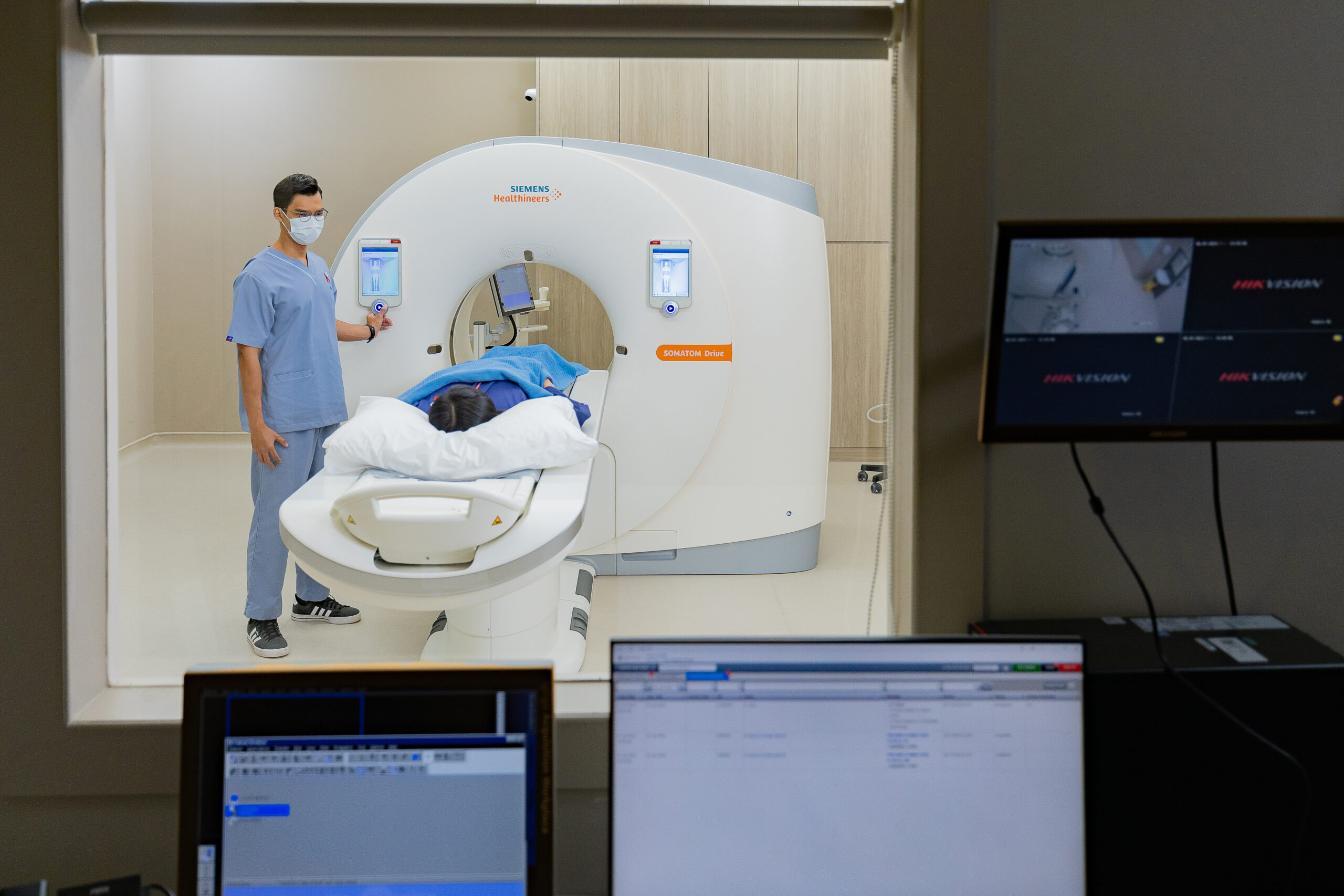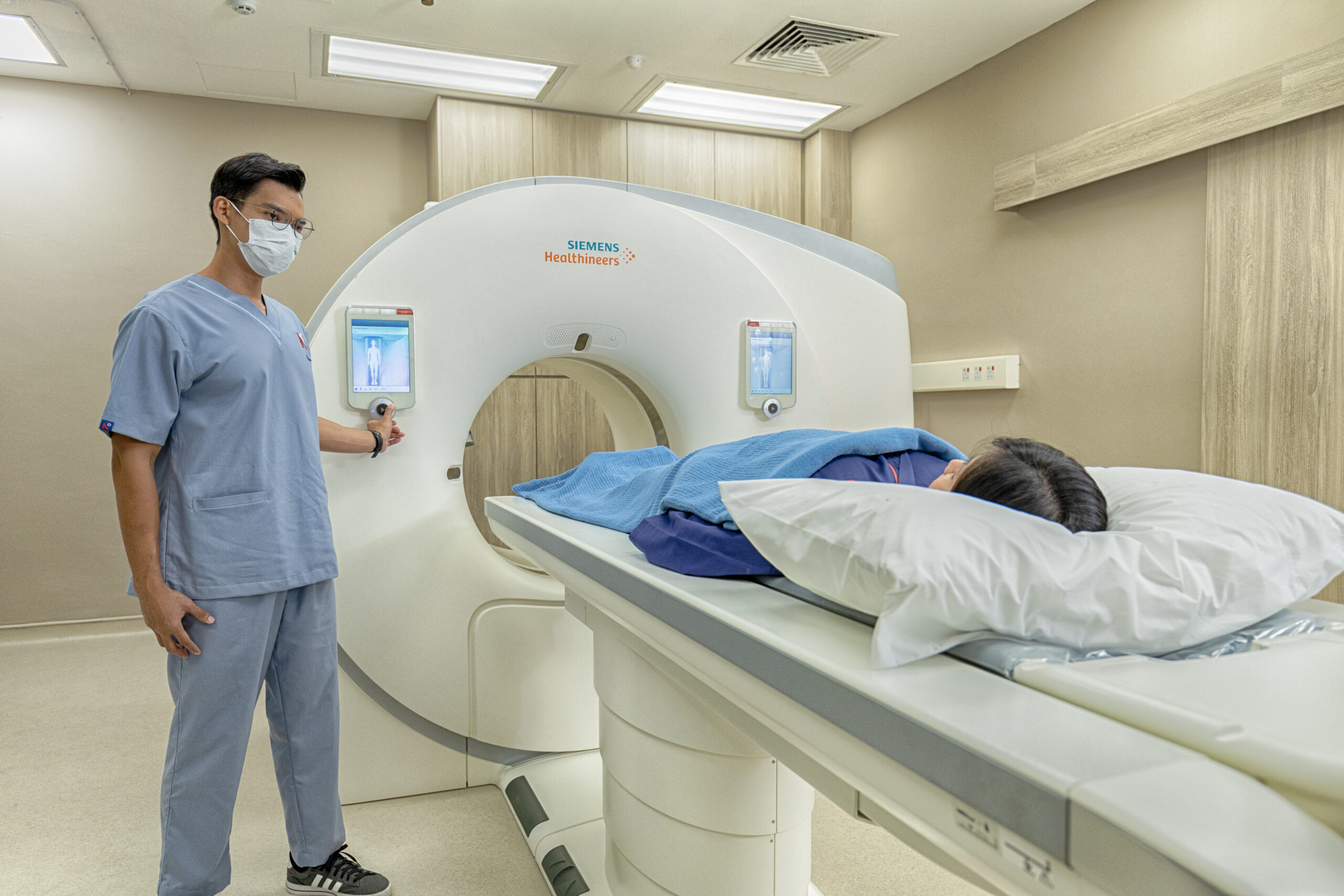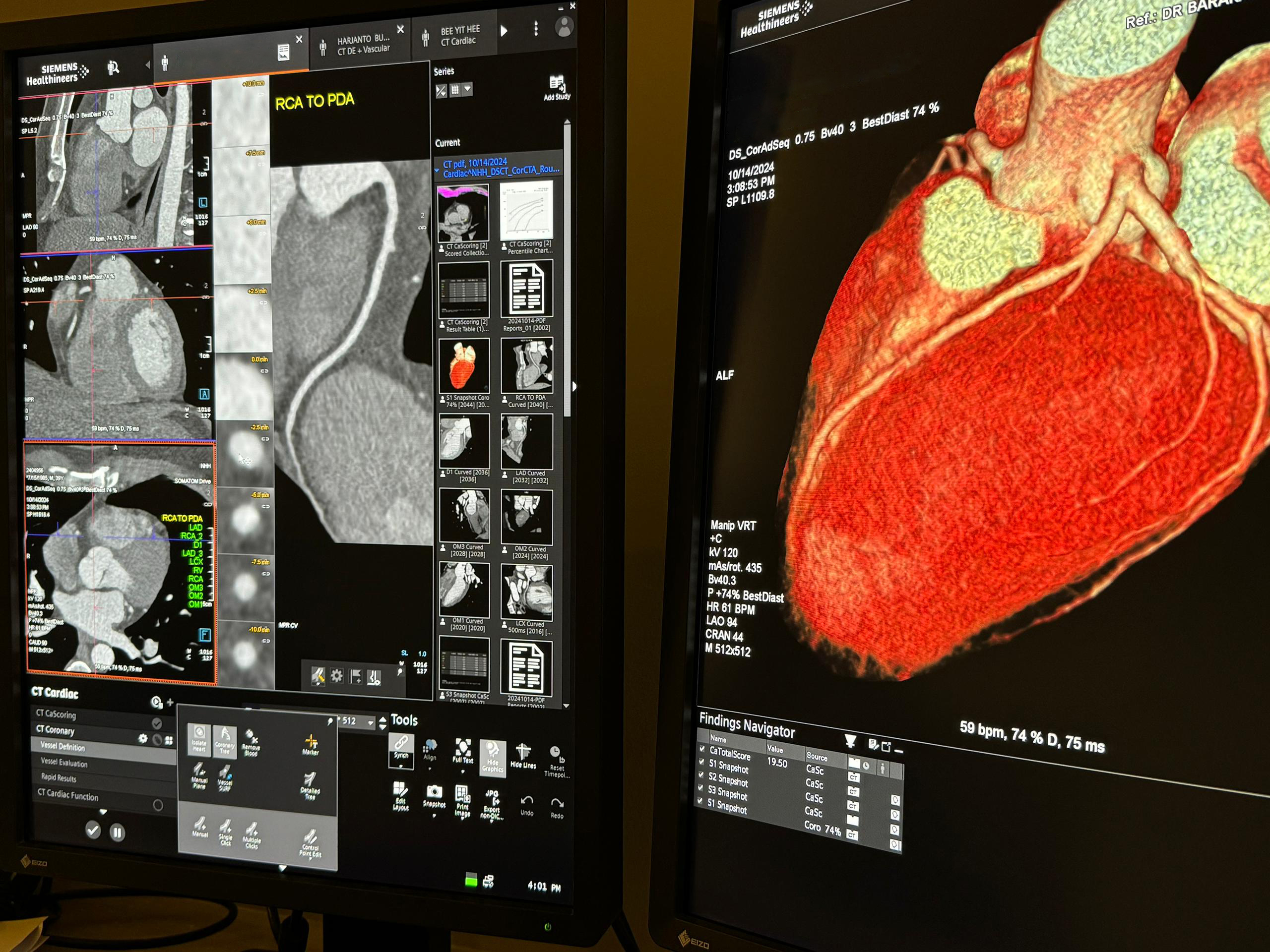
Welcome back to Northern Heart Hospital’s blog!
Today, we are diving into a crucial diagnostic tool in cardiology – the Cardiac CT scan. Whether you are preparing for the procedure or simply curious, this guide will give you what you need to know about why CT scans are vital for heart health, what they can detect, and how to prepare for one. At Northern Heart Hospital Penang, we offer cutting-edge cardiac CT imaging services, ensuring our patients receive the most accurate diagnoses possible. Our highly skilled team of cardiologists and radiologists work together to provide personalised care, helping to detect heart conditions early and develop effective treatment plans tailored to each patient.
What is a Cardiac CT scan?

A Cardiac Computed Tomography (CT) scan is a non-invasive imaging technique that uses X-rays and computer technology to create detailed cross-sectional images of the heart and surrounding blood vessels. This advanced method allows doctors to get a closer look at the heart’s structure and function without the need for surgery.
Cardiac CT scans are frequently used to assess coronary arteries, diagnose heart diseases, and evaluate the effectiveness of treatments and interventions. With high-resolution 3D images, healthcare providers can detect abnormalities that might not show up in regular X-rays, making it an invaluable tool in cardiovascular care.
Why is a Cardiac CT scan Important?
Heart disease remains a leading cause of death worldwide, and early detection is critical. A cardiac CT scan can:
- Detect coronary artery disease: A cardiac CT scan identifies blockages and narrowing in the arteries that can lead to a heart attack.
- Visualise heart structure: It assesses the condition of heart chambers, valves, and surrounding tissues.
- Identify calcium deposits: Calcification in the arteries can signal an increased risk of heart attack or stroke.
- Evaluate stents or bypass grafts: After heart procedures, a CT scan helps monitor the success of treatments like stenting or bypass surgery.
With a clear and accurate picture of your heart’s condition, doctors can make informed decisions about the best course of treatment, whether that involves medication, lifestyle changes, or more advanced interventions.

What Can a Cardiac CT scan Detect?
Cardiac CT scans are used to diagnose a wide range of conditions, including:
- Coronary Artery Disease (CAD): Plaque build-up in the arteries can lead to blockages that reduce blood flow to the heart. A CT scan can detect these blockages early.
- Heart Valve Problems: A CT scan provides a clear view of the heart valves, helping to identify diseases that may lead to heart failure if left untreated.
- Aneurysms: The scan can detect abnormal bulges in the arteries, which, if ruptured, can result in life-threatening conditions.
- Congenital Heart Defects: A CT scan identifies structural abnormalities present from birth, some of which may require surgical correction.
- Pericardial Disease: It detects inflammation or other abnormalities in the lining around the heart, known as the pericardium.
- Coronary Calcium Scoring: A cardiac CT scan can also measure the amount of calcium in the coronary arteries, helping to predict the risk of future heart disease.
- Visualised surrounding structures (e.g.: lower lungs, part of liver, part of upper abdomen)
Preparing for Your Cardiac CT scan
Preparation for a cardiac CT scan is straightforward, but it’s important to follow these guidelines to ensure accurate results:
Before the Scan:
- Your doctor may advise you to avoid food or drink for several hours before the scan.
- Refrain from caffeine on the day of the scan, as it can elevate your heart rate and affect image clarity.
- If you are on medications, continue taking them unless instructed otherwise by your healthcare provider.
- Remove any metal objects, such as jewellery, as these can interfere with the imaging.
During the Scan:
- You will lie on a table that slides into the CT scanner. During the scan, you may receive a contrast dye via an IV, which enhances the clarity of the images. This dye is generally safe, but notify your doctor if you have allergies or kidney issues.
- The scan itself takes approximately 10-20 minutes, with the actual imaging taking only a few seconds. You will be asked to hold your breath for short intervals to ensure clear images.
- The procedure is painless and quick, with no need for sedation.
After the Scan:
- There is typically no recovery time, and you can go back to your normal activities right away.
- Drink plenty of water to help flush out the contrast dye from your system.
- Your doctor will discuss the results with you after a radiologist has reviewed the images.
Understanding Potential Risks Involved
A cardiac CT scan is a safe and effective procedure. However, like any medical test, there are some minor risks to consider:
- Radiation Exposure: Although the CT scan uses X-rays, the level of radiation is low and carefully monitored to minimise risk. The benefits of detecting life-threatening heart conditions far outweigh the minimal radiation exposure.
- Allergic Reaction: Some individuals may experience an allergic reaction to the contrast dye. Be sure to inform your healthcare provider of any known allergies or kidney conditions before the procedure.
- Kidney Function: The contrast dye can sometimes affect kidney function, so your doctor may order a blood test to check your kidney health before the scan, especially if you have pre-existing conditions like diabetes or kidney disease.
What Happens After the Scan?
Once the scan is complete, a radiologist will carefully review the images and create a detailed report for your doctor. Based on the findings, your healthcare provider at Northern Heart Hospital will discuss the next steps with you, which might include lifestyle adjustments, medication, or further testing.
If abnormalities are found, your doctor might recommend treatment options to prevent further heart damage, or in some cases, immediate intervention may be required to reduce the risk of heart attacks or other complications.
Conclusion
Cardiac CT scans are a cornerstone in modern heart disease detection, providing early insights into potentially life-threatening conditions. At Northern Heart Hospital, we prioritise your heart health and use the latest technology to ensure you get the most accurate diagnosis possible. If you’re experiencing symptoms of heart disease or have a family history, talk to your healthcare provider about whether a CT scan is right for you.
Early diagnosis can make a world of difference when it comes to heart health. If you have any questions or concerns, don’t hesitate to reach out to our team at Northern Heart Hospital Penang. We are here to help you take proactive steps towards a healthier heart!
References:
- British Heart Foundation (BHF)
- NHS
- Mayo Clinic
- American Heart Association (AHA)
- John Hopkins Medicine
- American College of Radiology
